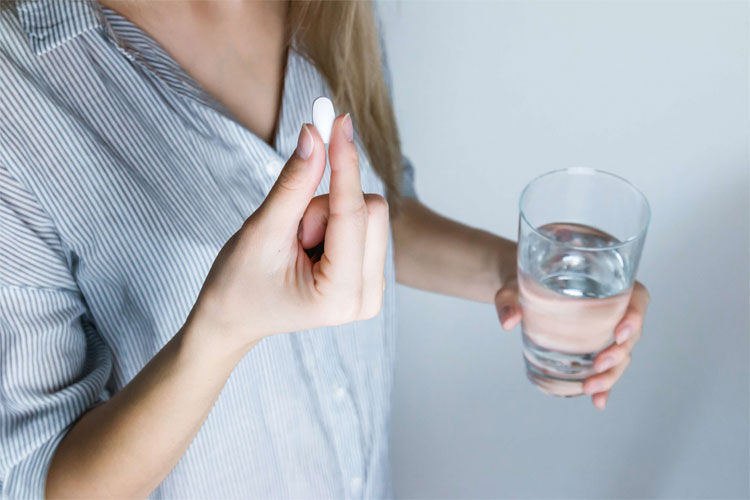6 absolute medicines should not be taken with hot water
Using hot water with herbal medicine, digestive enzymes can reduce or eliminate the effectiveness of the drug.
Most people take medication to pay attention to the use and dosage, but pay less attention to the temperature of the water used to drink it. In fact, hot water should not be used to take medicine because it can cause physical or chemical reactions that affect drug effectiveness.
Here are 6 medicines you absolutely don't drink with hot water, according to People.
Digestive enzymes and vaccines
Enzymes that support digestion with active proteins when exposed to high temperatures will be separated, thereby reducing or losing their effects. A similar phenomenon occurs with vaccines and highly active bacterial preparations. Ideally, these drugs should be used with cooled boiled water below 40 degrees C.
Vitamin
The vitamins C, B1, B2 . have unstable properties, so when exposed to hot water, it is easily oxidized, degraded and lost effectively.

The capsules are recommended for use with moderate warm water.
Pill capsules
The main component of capsule capsule is gelatin. Meeting hot water, capsule shells will quickly dissolve to make the drug inside spread, not only affect the taste but also reduce the effectiveness and safety of the drug. Therefore, capsules are recommended for use with moderately warm water.
Syrup
Types of syrup like cough syrup are easily diluted by hot water. At that time, the drug cannot cover the inflamed parts such as to form a protective film, stimulate mucus and reduce cough. If you drink syrup, you should not use too much water and make sure the water temperature is below 37 degrees C.
Herbal
Herbal medicines with ingredients such as honeysuckle, Bupleurum, Schizonepeta, musk, mint . have a distinctive scent and contain valuable essential oils. However, they often evaporate a lot, especially when exposed to high temperatures, so they should only drink with water at a temperature not exceeding 40 degrees C.
Amoxcilin antibiotic
Amoxcilin is more susceptible to hydrolysis, the higher the temperature, the higher the hydrolysis rate. Polymer polymer formation after hydrolysis can cause allergic symptoms similar to penicillin. Therefore, when taking Amoxcilin, the water temperature should be controlled below 40 degrees Celsius or used with cooled boiled water.
- There is evidence that cannot be achieved 'absolute zero'.
- Long strides close to the secret of absolute zero
- '100% moisture' means air has become water?
- Magnetic properties disappear at almost 0 degrees absolute
- Famous brand in 2014 has the presence of Bao Thanh herbal medicine
- Medicines from marine animals
- Drugs should be stored in the home during Tet
- Diet pills need?
- Create monster embryos to prepare medicines
- The secret of the giant farm raised 6 billion cockroaches in China
- The absolute power of the world's fastest interceptor MiG-31
- The US launched the world's most expensive drug, which cost $ 850,000
 Green tea cleans teeth better than mouthwash?
Green tea cleans teeth better than mouthwash? Death kiss: This is why you should not let anyone kiss your baby's lips
Death kiss: This is why you should not let anyone kiss your baby's lips What is salmonellosis?
What is salmonellosis? Caution should be exercised when using aloe vera through eating and drinking
Caution should be exercised when using aloe vera through eating and drinking How do marine animals drink filtered water?
How do marine animals drink filtered water?  Discover the secret of the water buffalo
Discover the secret of the water buffalo  Shocking discovery about the Earth's 'tail'
Shocking discovery about the Earth's 'tail'  Top 10 Unbelievable Ways Animals Survive in Dangerous Environments
Top 10 Unbelievable Ways Animals Survive in Dangerous Environments  Mysterious wonders of the world
Mysterious wonders of the world  The largest animals that lived in the desert, still exist today
The largest animals that lived in the desert, still exist today 